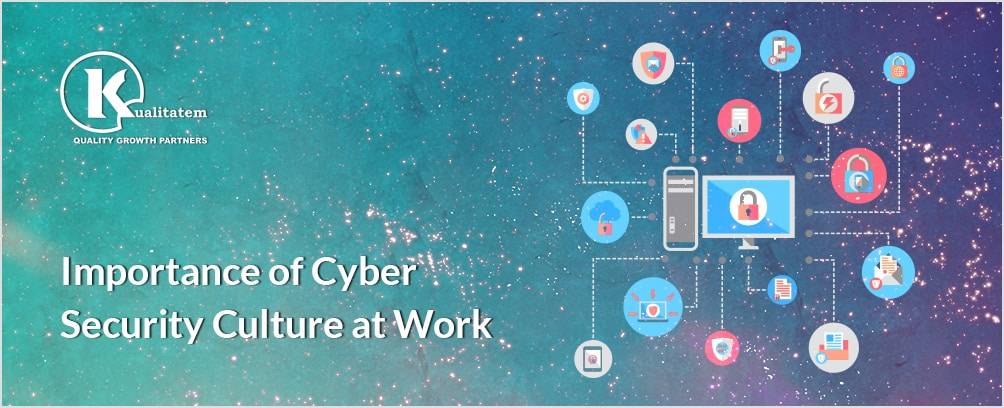Importance Of Cyber Security Culture At Work

- March 9, 2017
- admin
We adopt cyber security culture within the organization for the purpose of securing the organization’s confidential information and intellectual property by way of focusing on the security fundamentals, employees’ trainings / awareness as well as by involving the management of the organization in the process of implementing cyber security within the organization.
We already know that the ‘computer crimes’ cause serious issues for tech businesses. They can snip the identity, intellectual assets, compromise personal details, medical health records, account information and other privately saved data.
So it is the need of the hour that the cyber security culture must be put in place at work through proper adoption of policies and guidelines etc. for using different information assets. Besides the information, proper designing and maintenance of the infrastructure is also needed for the sake of protecting company’s hardware and devices.
Emphasis on the Security Essentials:
Common people are more willing to grip the security if the implementation concepts are quick and easy to learn and navigate. The proper reasoning against all the security essentials will help people to understand why it is necessary to focus on for a long-term period.
It is highly recommended that the security professionals should focus on the following underpinning areas and build a secure work environment.
- Baseline: Set the baseline in form of initial perimeter to secure information assets and mandatory business goals. Always follow proactive approach, however if there is anything that deviates from the actual routine setup then the pre engagement process should be followed in order to avert any problems.
- Impose and Maintain Boundary Access: Allow the access to the information on requirement basis only. Allowing access to information to everybody in the organization increases the risks of security breaches. To avoid such problems, you need to develop and maintain an effective security process according to which each individual has to request for accessing the data and other resources used within the office premises.
- Document and Monitor: Always keep track of the inventory you have, enlist & document all the items properly, keep the tags and track them, update the records on periodic basis. This will help the organization to keep the records of the inventory and monitor them accordingly.
- Patches: It is very critical for the companies that they update their software patches on daily or periodic basis in order to avoid any weaknesses/loop-holes being exploited.
- Passwords Policy: Password change policy or good password practices should be implemented and enforced within the organization in order to prevent any breaches and/or unauthorized access to the sensitive and personal information.
Employee Training Program:
In any organization, only the InfoSec employees are not solely responsible for taking care of security, they do as much as they can. But the thing worth noting here is that not only the InfoSec employees conduct correspondence with third parties and other stake holders. Other members from different departments of the organization are also involved in this process. So it is important that you educate all the employees within the organization about how they can secure the information and intellectual property.
Management’s Role in Developing a Security Culture:
It is very important for any organization that their senior management should be helpful in promoting the security posture, goals and core objectives throughout the organization. Mostly organizations fail at this because their management does not invest much time and attention in implementing the security culture.
Management sets the example to choose the secure manners that could be essential for all employees to use and practice. Such organizations that use and put emphasize on risk analysis and other related procedures always manage to develop a more positive and secure culture at work.
CONCLUSION
A better and organized cyber security culture depends upon the contribution of all the personnel’s. Organizations must acquire adequate cyber security professionals who put the focus on the importance of security basics, engage the employees through organized awareness and training programs (approved by the higher management) regularly in order to make sure that the organization succeeds in developing an effective cyber security culture.











